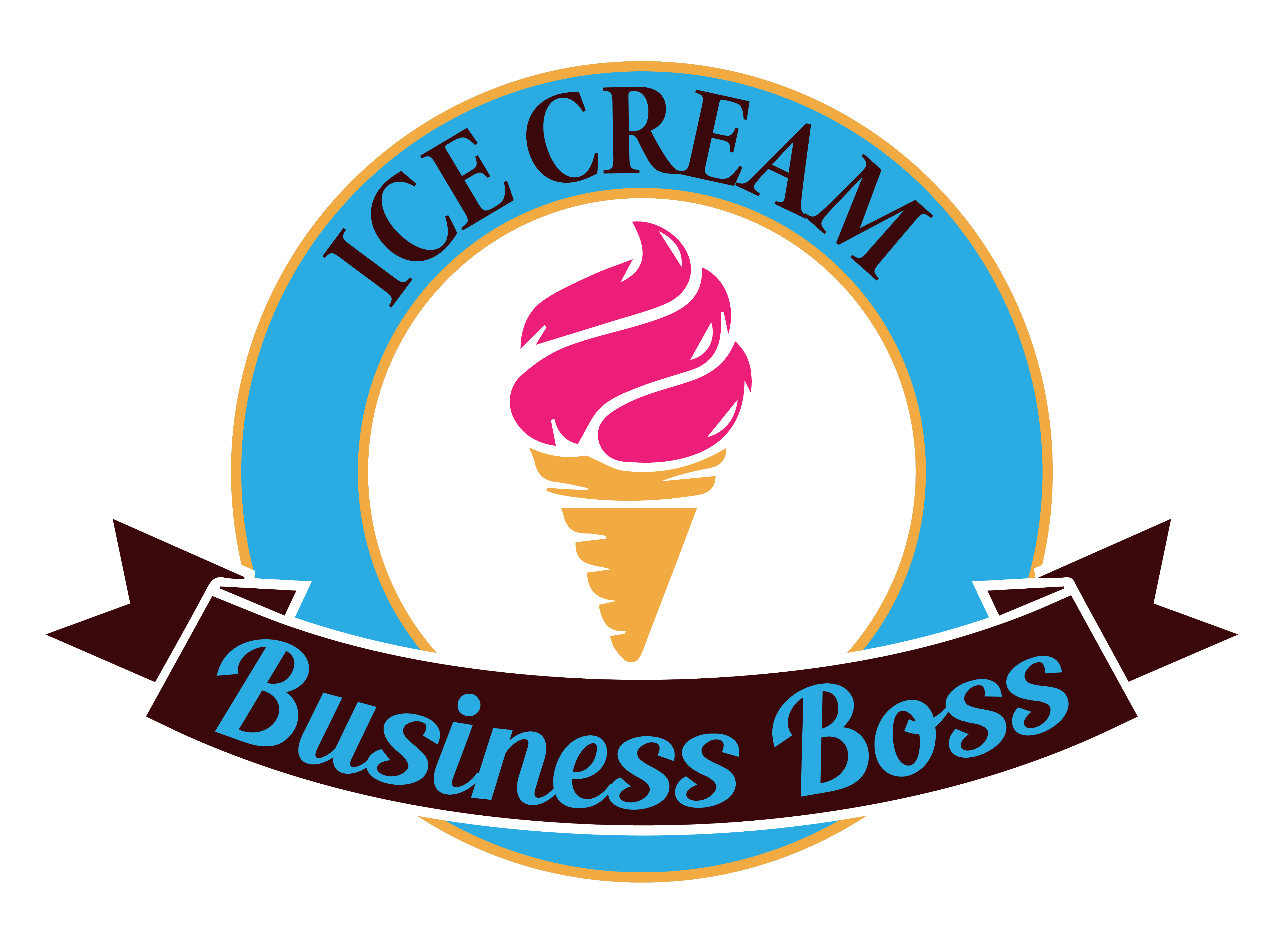Few endeavors capture the essence of joy and enjoyment quite like a natural ice cream franchise in the ever-changing landscape of business prospects. For budding entrepreneurs, the concept of creating delightful frozen delights and sharing them with eager clients might be a fascinating fantasy. While the attractiveness of such a venture cannot be denied, the road from concept to reality necessitates a full understanding of the financial element – the natural ice cream franchise investment.
To effectively start with a natural ice cream franchise, you should begin by recognizing that the investment typically falls between $100,000 to $300,000, encompassing expenses like franchise fees, equipment, store setup, and initial inventory.
This article goes into the complex world of natural ice cream franchise investment. Join us as we investigate the components of the investment, the potential returns on your investment, and the strategic insights to guarantee that your investment opens the path for a fulfilling adventure in the world of natural ice cream franchising.
Understanding the Investment Range
Starting a natural ice cream franchise is an appealing possibility, but prospective franchisees should first obtain a thorough understanding of the potential investment necessary.
The investment landscape for such enterprises normally ranges from $100,000 to $300,000, which is an important aspect in determining the feasibility of the company. This investment includes a slew of critical components that, when combined, lead to the foundation of a fruitful ice cream business.
The cost of securing a suitable location for the franchise business is at the heart of this investment. A prime and strategic site is critical for drawing customers and boosting foot traffic, which directly impacts the franchise’s income potential.
Expenses for interior design, decor, and equipment acquisition must also be considered in the investment strategy. Maintaining the quality and appeal of natural ice cream offers requires high-grade machinery, storage facilities, and display systems.
Franchisees must devote a portion of their investment to branding, marketing, and promotion. Creating awareness in the local community and developing a recognizable brand are critical stages for an effective launch. Initial inventory costs, staff training costs, and operating overheads should all be included because they contribute to the overall financial picture.
Franchise Fees: The Foundation of Partnership

A significant portion of the initial expenditure for starting a natural ice cream business is committed to franchise fees. These costs are critical in laying the groundwork for the connection between the prospective franchisee and the franchisor, resulting in a symbiotic relationship based on mutual benefit and collaboration. Essentially, franchise fees provide the franchisee with the invaluable opportunity to leverage the franchisor’s established brand, time-tested business model, and solid support systems.
The amount of franchise fees might vary depending on the status, recognition, and reach of the specific franchise. Renowned and well-known franchises may expect greater fees in exchange for the increased exposure and legitimacy they provide. Regardless of the particular numerical value, franchise fees are a cornerstone of the franchise experience, encapsulating the essence of a strategic collaboration.
Franchise fees are both a financial transaction and a gateway to a variety of benefits. Franchisees who pay these fees receive access to a collection of tried-and-true business ideas, operational standards, and marketing approaches that have been improved and enhanced over time. Franchise fees give franchisees the invaluable opportunity to use an already existing brand identification, eliminating the need to start from scratch and work relentlessly to gain recognition from the ground up.
Explore the thrilling world of ice cream shop profit margin by checking out this article here.
Equipping Your Venture: Procuring Essential Tools
The process of equipping a natural ice cream franchise is a critical moment that requires precise preparation and deliberate decision-making. This stage of investment comprises obtaining a collection of key tools and equipment required for the smooth execution of everyday operations.
These include a variety of products such as ice cream machines, freezers, display units, and cutlery. Recognizing the enormous impact of these instruments on both ice cream quality and overall operational efficiency, franchisees must approach this part of investing with caution and foresight.
The insight that the caliber of the equipment used has a direct association with the caliber of the ice cream produced is fundamental to this equation. High-performance ice cream machines that can produce creamy, uniform textures are the foundation of providing a superb product that delights customers. Similarly, dependable freezers play an important role in maintaining the ideal temperature required to preserve the freshness and taste integrity of the ice cream.
The choice of display units has a considerable impact on the aesthetic appeal and accessibility of the ice cream to clients. A well-designed display not only highlights the diversity of flavors available but also entices visitors to make indulgent choices. A wise selection of utensils, on the other hand, promotes the flawless execution of preparation and service, contributing to the efficiency of the franchise’s daily operations.
Creating a Captivating Store Setup
The aesthetics and ambiance of an ice cream parlor are more than just decorative elements; they have a significant impact on the establishment’s growth. A significant percentage of the expenditure is dedicated to the meticulous setup of the store, which includes interior design, decor, furnishings, and signage. The impact of this investment goes far beyond mere aesthetics, as the layout and ambiance of the parlor actively create the customer experience and play a critical part in attracting customers through the doors.
A well-planned retail layout goes beyond visual attractiveness and embraces the immersive power of design. Color palettes and seating arrangements, for example, can have a big impact on the atmosphere and image visitors have of their visit. Decorative components that are carefully selected to complement the brand’s identity can boost the overall ambiance, creating an environment that inspires good emotions and an air of indulgence.
Strategically positioned furniture promotes comfortable seating and encourages customers to stay longer, increasing the possibility of more purchases and extended enjoyment. Signage has a dual purpose in that it not only guides clients through the menu but also conveys the essence of the business and its commitment to quality.
Creating an ice cream parlor with a well-thought-out, visually appealing atmosphere can pay off in the long run. In such an atmosphere, the establishment develops a distinct character that distinguishes it from competitors, making it distinctive and recognized in the minds of clients. An appealing and delightful atmosphere develops attachment and loyalty, driving customers to return and suggest the parlor to others.
Initial Inventory Acquisition: Ensuring a Flavorful Start

The acquisition of the initial inventory is an equally important aspect of the investment in creating a natural ice cream franchise. This significant investment exemplifies the company’s dedication to providing clients with an unrivaled selection of tastes that encapsulate the spirit of natural enjoyment.
Making the exquisite ice cream that customers crave requires a wide range of high-quality, natural ingredients. These ingredients, which range from luscious fruits and premium nuts to beautiful chocolates and a mix of flavor-enhancing substances, serve as the foundation for the franchise’s culinary masterpieces.
Allocating expenditures to ensure a large starting inventory goes beyond logistics; it demonstrates a commitment to culinary excellence and ice cream creativity. The inclusion of these carefully curated components enables the ice cream shop to appeal to a wide range of tastes, preferences, and dietary restrictions from day one. The ability to showcase a variety of flavors not only captivates consumers’ palates but also positions the business as a haven for fine, natural ice cream lovers.
This investment goes much beyond monetary transactions, bearing the weight of keeping promises to supply pleasurable and novel flavors. Investing in a varied and high-quality inventory establishes the franchise’s reputation for excellence. It communicates to customers that the ice cream shop is dedicated to handcrafting each scoop with care and creativity, filling each bite with a blast of natural flavors.
Learn is an ice cream business is worth to invest or not by visiting this article here.
Financial Planning: Beyond the Initial Investment
Recognizing the range of expenditure required to launch a natural ice cream business is unquestionably critical to its launch. However, franchisees must also plan ahead of time for the variety of continuing operational expenses that may arise as the firm grows. These include a wide range of expenses, including rent for the chosen location, utilities to support daily operations, staffing compensation, marketing campaigns, and the necessary aspect of upkeep.
Aside from the initial financial investment, franchisees must ensure that they have a comprehensive understanding of the financial commitment required to not only sustain but also move the franchise forward. A strong and precise company strategy that incorporates both the initial investment and the expected recurring expenses is a strategic must. This business blueprint acts as a road map for navigating the market’s intricacies, encouraging long-term growth, and eventually ensuring profitability.
Rent accounts for a sizable portion of operational costs, with the location of the franchise having a direct impact on foot traffic and revenue creation. Allocating funding for utilities such as electricity and water is critical to sustaining daily operations and maintaining ice cream quality. Staffing costs include salary and benefits for qualified individuals who are required to provide great customer service.
Marketing investments are critical for raising awareness, increasing customer engagement, and preserving a competitive advantage. Aside from this, budgeting for regular maintenance is critical to maintaining the parlor’s aesthetic appeal and functionality, as well as ensuring that the customer experience remains consistently outstanding.
Seeking Financial Support and Investment Options
The notion of covering the first investment range independently can be a difficult obstacle for budding entrepreneurs with a great desire to begin a natural ice cream business. However, this should not be a deterrent because there are numerous financial support options available to help them realize their objectives.
Exploring financial aid programs offered by franchisors is one such option. Many franchisors understand the financial constraints that potential franchisees have and offer financing alternatives that are suited to their specific requirements. These initiatives may be able to lessen the strain of the initial investment, making franchise ownership more feasible.
Entrepreneurs might seek support from financial organizations that specialize in giving financing to growing businesses through typical business loans. These loans can provide the necessary money while also providing flexible payback terms that correspond to the franchise’s income trajectory.
Crowdfunding has evolved as a democratized technique of obtaining financing from a larger audience of supporters who believe in the business concept. This platform allows entrepreneurs to pool resources from a diverse group of people who share their excitement for the enterprise.
Another option is to seek financial partners who share the entrepreneur’s vision and believe in the potential of the natural ice cream business. Collaborating with like-minded individuals who bring both financial resources and skills to the table can reduce financial stress while also enriching the overall company journey.
Frequently Asked Questions
How much money does it typically need to start a natural ice cream franchise?

The average investment required to start a natural ice cream franchise is between $100,000 and $300,000. This investment includes a variety of costs, such as franchise fees, equipment purchases, store setup, and initial inventory buying.
Can I get financial help to cover the first investment in a franchise?
Yes, many franchisors provide financing packages to help prospective franchisees secure the necessary finances. Entrepreneurs can also look towards traditional company financing, crowdfunding, or seeking investment partners who share their vision to assist in covering the investment range.
What is included in the investment in a natural ice cream franchise?
The investment covers several critical components. Franchise fees are an important component, as they provide access to the franchise’s brand, business model, and support systems. It also entails purchasing equipment such as ice cream makers, freezers, and utensils, designing an enticing store layout, and purchasing the initial inventory of high-quality natural ingredients for making delectable flavors.
The information provided by IceCreamBusinessBoss.com (“The Site”) is for general informational purposes only. All information on the Site is provided in good faith, however, we make no representation or warranty of any kind, express or implied, regarding the accuracy, adequacy, validity, reliability, availability, or completeness of any information on the Site. Under no circumstance shall we have any liability to you for any loss or damage of any kind incurred as a result of the use of the Site or Reliance on any information provided on the Site. Your use of the Site and your reliance on any information on the Site is solely at your own risk. This blog post is for educational purposes only and does not constitute legal advice. Please consult a legal expert to address your specific needs. Terms and Conditions.

Hi! I am Shawn and I am a happy individual who happens to be an entrepreneur. I have owned several types of businesses in my life from a coffee shop to an import and export business to an online review business plus a few more and now I create online ice cream/gelato business resources for those interested in starting new ventures. It’s demanding work but I love it. I do it for those passionate about their business and their goals. That’s why when I meet a ice cream/gelato business owner, I see myself. I know how hard the struggle is to retain clients, find good employees and keep the business growing all while trying to stay competitive.
That’s why I created Ice Cream Business Boss: I want to help ice cream and gelato business owners like you build a thriving business that brings you endless joy and supports your ideal lifestyle.

